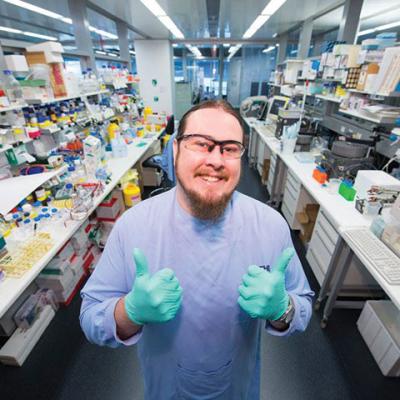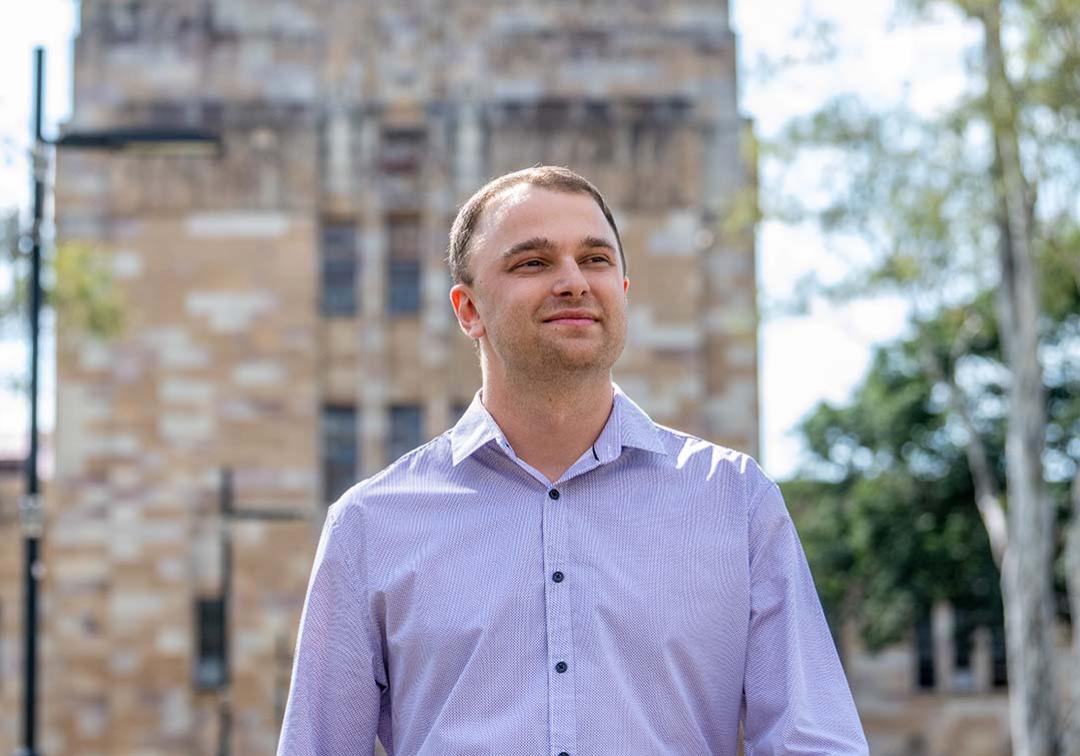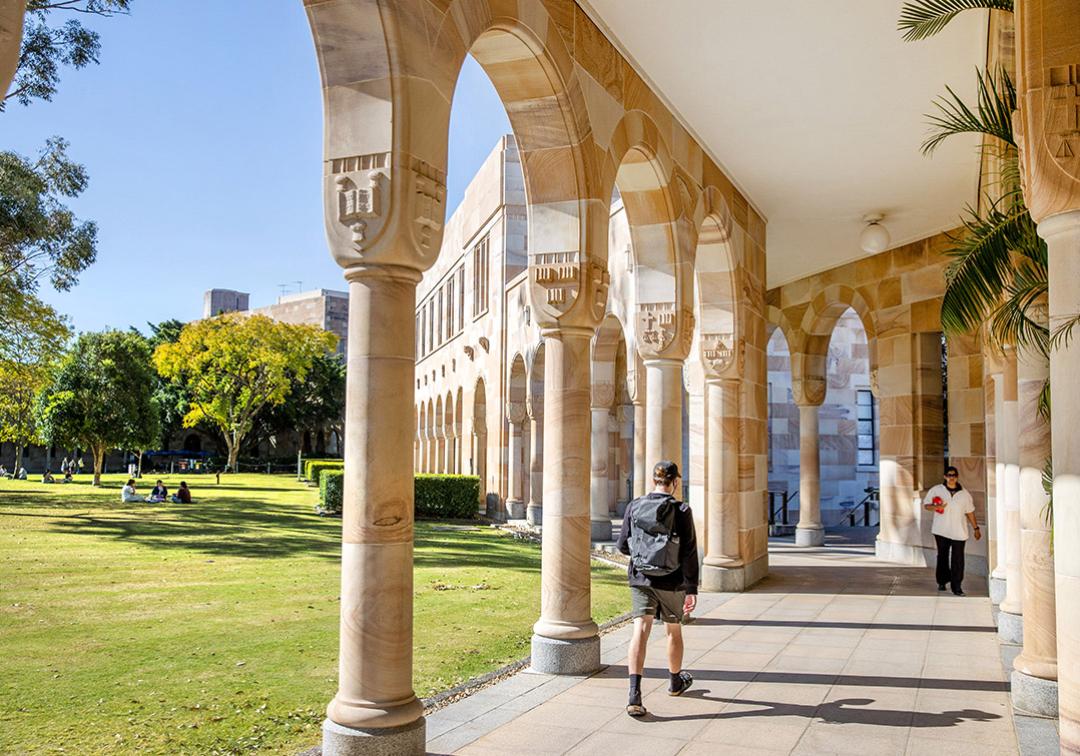
Graduate Certificate in Molecular Biology
Overview
Acquire high-level knowledge and practical skills in modern molecular biology research or industry practice.
Designed for scientists, this half-year program will see you master laboratory techniques such as:
- electrophoresis
- polymerase chain reaction
- endonuclease mapping
- fluorescent reporters
- expression vectors.
Develop an advanced knowledge of the structure and function of genes and the proteins they encode, including genome sequencing, recombinant DNA technology and macromolecular structure determination.
Receive training in bioinformatics, molecular genetics, biomolecular structure and function, and immunology, through laboratory practicals, workshops, projects and directed study.
Graduate with the high-level knowledge and skills to achieve your goals in modern molecular biology research or industry practice.
Program highlights
- Study at an international powerhouse of teaching and research in chemical and molecular life sciences.
- Learn from scientists who have contributed to breakthroughs in safer vaccines, antibiotic resistance, viral infections and early breast cancer detection.
How you'll learn
Your learning experiences are designed to best suit the learning outcomes of the courses you choose.
- Lectures
- Tutorials
- Laboratory work
- Workshops
What you'll study
At UQ, degrees are called 'programs' and subjects are called 'courses'. Here's a sample of the courses you could study in this program:
- Immunology and Infectious Diseases
- Concepts in Bioinformatics
- Directed Studies in Molecular Genetics
- Directed Studies in Biomolecular Structure and Function
Career possibilities
Postgraduate study can take you anywhere. Here are some of the careers you could be on your way to:
- Analytical biochemist
- Genetic pathologist
- Immunologist
- Biotechnologist
- Environmental biologist
- Bioinformatician
- Pharmaceutical scientist
- Microbiologist
- Virologist
- Embryologist
Average annual salary range
Embryologist
seek.com.au
Average annual salary range
Microbiologist
seek.com.au
Events
See all events
29 June - 6 July
Year 11 Queensland Chemistry Winter School

29 June
Queensland Biology Winter School, Year 12

1 July
International Baccalaureate Research Skills Program
Stories
See all stories
Uni life
What's it really like to study science at UQ?
9-minute read
Stories
See all stories
Uni life
What's it really like to study science at UQ?
9-minute read
Entry requirements
Entry requirements
To be eligible for entry, you'll need:
- a bachelor's degree (or equivalent) in any discipline, with at least one course in chemistry or biology, or
- 2 years full-time equivalent, relevant work experience (see below).
- a bachelor's degree (or equivalent) in any discipline, with at least one course in chemistry or biology, or
- 2 years full-time equivalent, relevant work experience (see below).
Relevant work experience
Relevant work experience includes work in biotechnology, science, medicine, biomedical science, pharmacy, bioinformatics, genetics, molecular biology, biochemistry, and biological chemistry.
Related programs
Depending on your previous qualifications and current goals, you might want to consider
one of these related programs:
English language requirements
IELTS overall 6.5; reading 6; writing 6; speaking 6; listening 6. For other English Language Proficiency Tests and Scores approved for UQ
TOEFL iBT (including Paper Edition) - Overall 87, listening 19, reading 19, writing 21 and speaking 19.
PTE Academic - Overall Score of 64 and 60 in all sub bands.
BE - A minimum overall grade of 4 plus a minimum grade of C in all macro skills.
CES - Overall 176 and 169 in all sub bands.
OET is not accepted.
There are other ways to meet the English language requirements. For some programs, additional conditions apply.
Student visas
International students who are accepted into full-time study in the Graduate Certificate in Molecular Biology are eligible to apply for an Australian student visa (subclass 500).
There are a number of requirements you must satisfy before a visa is granted, including the Genuine Student (GS) requirement.
Fees and Scholarships
Indicative annual fee
Approximate yearly cost of tuition (8 units). Your fees will vary according to your selected courses and study load. Fees are reviewed each year and may increase.
$4,770
2026
Approximate yearly cost of tuition (8 units). Your fees will vary according to your study load. Fees are reviewed each year and may increase.
AUD $27,048
2026
Government assistance
Financial aid
As an international student, you might be eligible for financial aid – either from your home country, or from the Australian Government.
HECS-HELP
Domestic places in the Graduate Certificate in Molecular Biology are Commonwealth supported, as long as you meet all Commonwealth supported place eligibility requirements.
This means the cost of your education is shared between you and the Australian Government. Instead of tuition fees, Commonwealth supported students pay what are called student contribution amounts.
If you have a Commonwealth supported place, you may also be eligible for HECS-HELP. This is an Australian Government loan scheme to assist eligible students with the cost of their student contribution amounts.
Centrelink support
The Australian Government offers a number of income-support payments to eligible Australian university students.
Scholarships
You may be eligible for more than 100 scholarships, including:
How to apply
Applying online
All international applications should be submitted to UQ. If you prefer, you can use an approved UQ agent near you.
The program code for the Graduate Certificate in Molecular Biology is 5042.
Applying online
All domestic applications should be submitted to UQ.
The program code for the Graduate Certificate in Molecular Biology is 5042.
Important dates
The closing date for this program is:
- To commence study in semester 2 - May 31 of the year of commencement.
- To commence study in semester 1 - November 30 of the previous year.
Visa processing times vary. Apply and accept your offer as early as you can.
To learn more about UQ dates, including semester start dates, view the Academic Calendar.
Important dates
The closing date for this program is:
- To commence study in Semester 1 - January 31 of the year of commencement.
- To commence study in Semester 2 - June 30 of the year of commencement.
To learn more about UQ dates, including semester start dates, view the Academic Calendar.
Aboriginal and Torres Strait Islander applicants
For support with applying – or if you have any questions about university life – get in touch with our Aboriginal and Torres Strait Islander Studies (ATSIS) Unit.
Explore other programs
Express yourself. And your interest.
They say choosing a degree is hard, which is why we've made it easy. Register your interest and we'll send you everything you need to know about applying to UQ.




